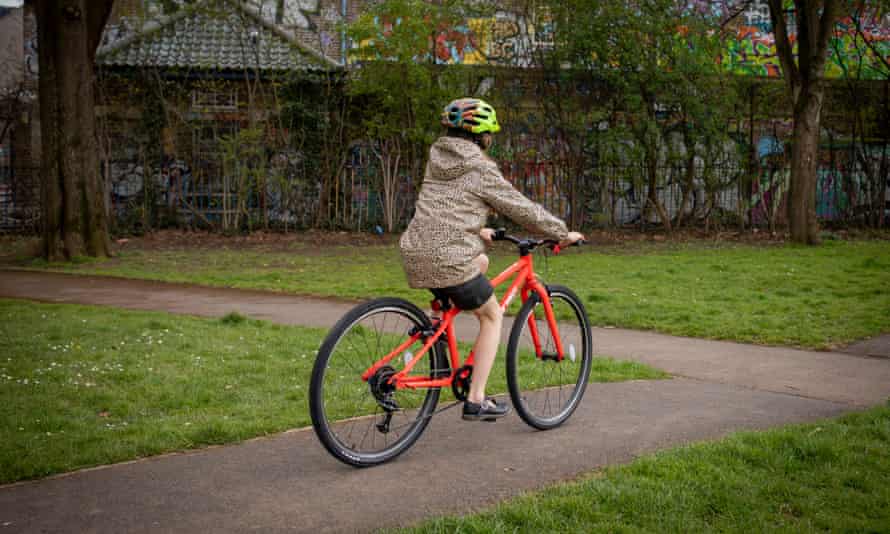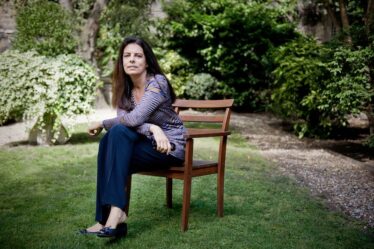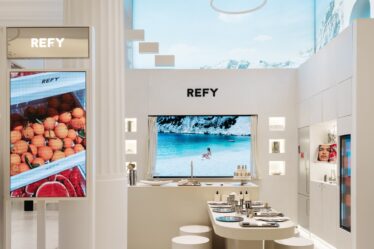
Tessa Lidstone remembers the last meals she cooked before she had to close her Bristol restaurant Box-E for the first lockdown. It was 14 March 2020, and the restaurant was rammed. The venue is tiny: just 14 tables in two repurposed shipping containers. “It felt like a scary time,” says the 40-year-old. “Everything was slipping away and beyond our control.”
With the restaurant closed for the foreseeable, Lidstone got to thinking about how other people might be coping. “I felt isolated in the pandemic,” she says, “but I was so lucky: I had my husband and kids with me. I thought about all the people without a support network and how awful it must be to not have contact with anyone.”
Lidstone saw a callout from a collective of Bristol restaurants called the Bristol Food Union. They were looking for volunteers to help put together boxes of emergency food for young care leavers who would be isolated during those initial days of the pandemic. “I thought, I’d love doing that,’” says Lidstone. “It was originally going to be for two weeks. But it just grew from there.” In her first week, Lidstone put together boxes for 100 young care leavers: pasta, bread and milk, but also fruit and veg, and the odd sweet treat. By the second week, she was coordinating packages for 250 people.
The council provided funding, but Lidstone had to source and order the food. Most suppliers were more than willing to help. “They were so generous,” she says. “If I ordered milk, bread and butter, they’d donate fruit and vegetables as well. It meant I could make the money go further.” She was keen to include more than the basics. “I don’t want to use the word ‘luxury’,” she says, “Things like cheese shouldn’t be a luxury. I wanted the food to be interesting.”
Lidstone put her restaurant training to good use, creating a weekly recipe card to go in each box. She also videoed herself making the meal and posted it online. “It was basic home cooking,” she says. “Lentil bolognese, macaroni cheese, fajitas.”
By week three, Lidstone was thinking bigger: “I asked the council if there were any birthdays coming up and we’d arrange something extra for the young person.” And she heard from the volunteers who delivered the boxes that young parents were always in need of nappies. “I got mountains of nappies and baby food,” she says, “so we could offer a more appropriate box of essentials.
“One young woman asked for some toddler plates, forks and spoons,” she says. “It really touched me: given everything that was going on in the world, she was trying to create an environment for her child that she hadn’t necessarily had herself growing up.”
Nick Matthews, who works for Total Produce, one of Lidstone’s suppliers, helped drop off her packages. “You could see how much it meant to people,” he says, “to realise someone was thinking of them in a hard time like that.”
By then, the scale of Lidstone’s operation had become a bit overwhelming. “The first few weeks I packed everything on my own,” she says. “You think you can pack 100 boxes just like that. But there were so many elements. It took ages.” Staff from the restaurant, and Lidstone’s children, helped out.
In all, Lidstone and her team delivered 2,500 boxes over 16 weeks. She makes light of this. “It’s easy to feel overwhelmed by a situation,” she says, “and think you can’t do anything. But there are small things we can all do, and they make a difference.”
When Box-E reopened in September 2020, Lidstone hired a care leaver as a paid apprentice. He’d wanted to get into the industry and had some cooking experience. “It has been lovely having him in the kitchen and seeing him grow as part of the team,” she says.
When I ask Lidstone what she’d like as a treat, her thoughts go immediately to her daughters – Lois, 9, and Rita, 6 – who packed boxes for her week after week at Bristol City football club after the operation outgrew Lidstone’s house. Between packing stints, the girls would ride their bikes around the ground, making obstacle courses out of empty boxes. “Rita learned to ride properly there,” says Lidstone. But she has outgrown her bike, and is using her big sister’s which means Lois is bike-less.
Sign up to our Inside Saturday newsletter for an exclusive behind-the-scenes look at the making of the magazine’s biggest features, as well as a curated list of our weekly highlights.<br>
Lidstone tentatively suggests a new bike for Lois, so they can go on family rides again. Bike Club supplies a bright red Forme cycle. Lidstone keeps it secret, so it is a surprise for Lois. “She came in, saw the box and was so excited,” says Lidstone. “She loves it.” They plan to go cycling this weekend as a family, for the first time since the pandemic. “We just need to put the pedals on!” Lidstone laughs.
Want to nominate someone for Guardian angel? Email us – with their permission – and suggest a treat at guardian.angel@theguardian.com



